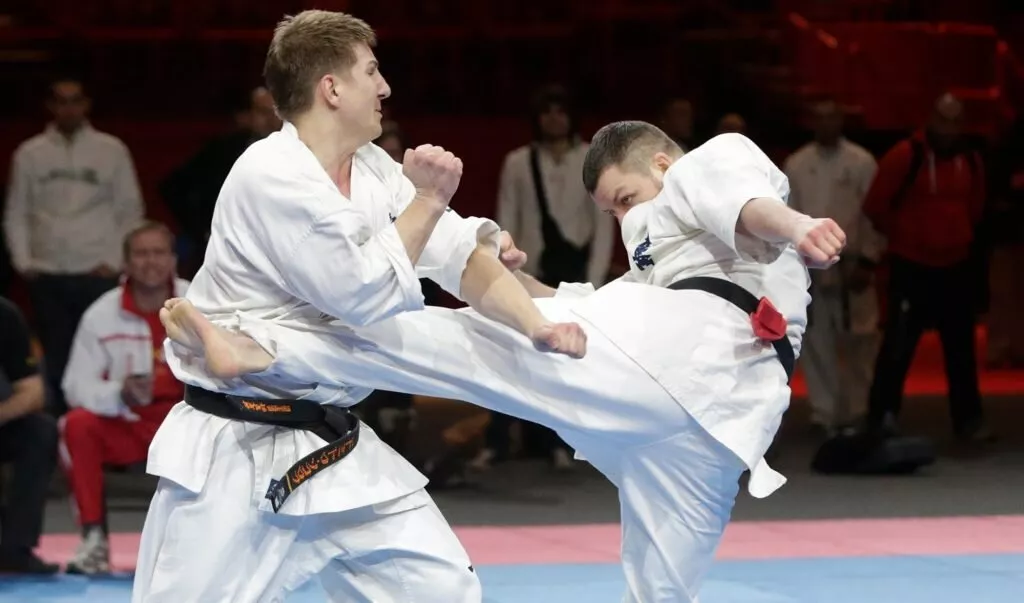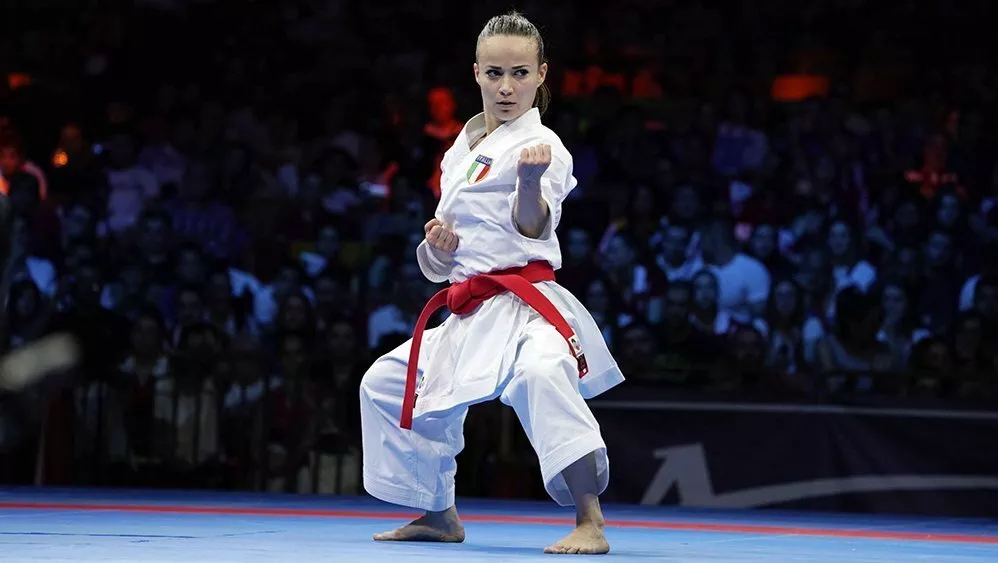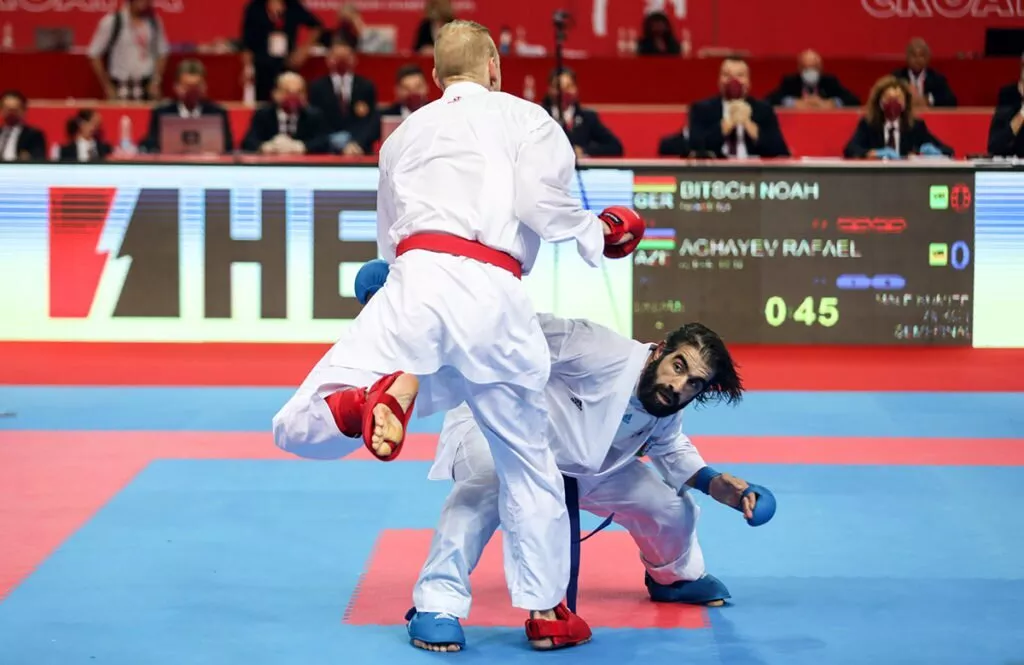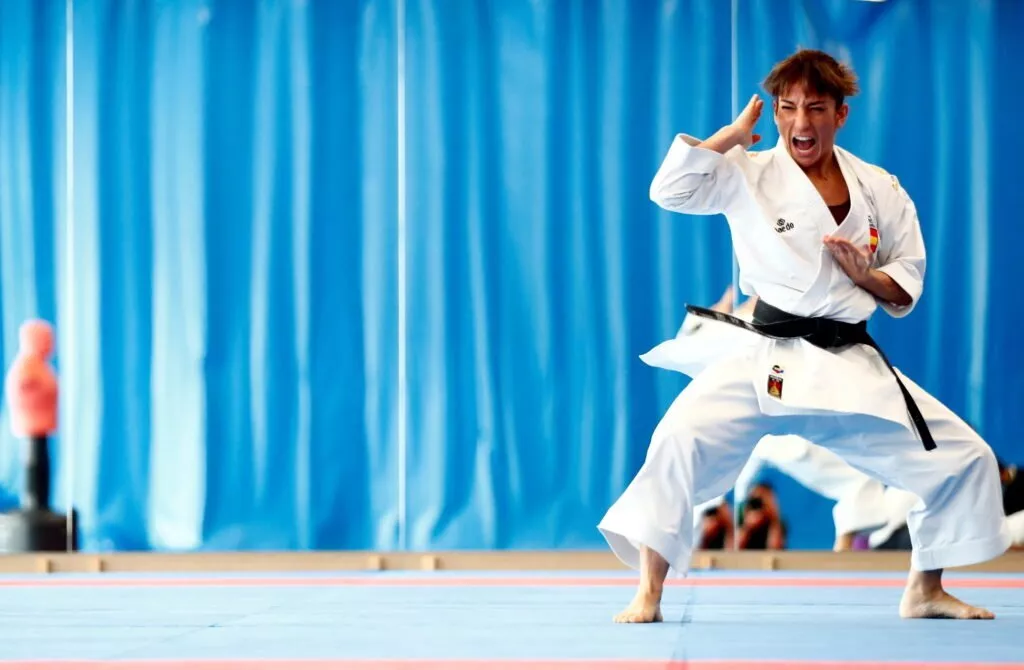Olympics A to Z: A brief history of Karate at the mega event

(Courtesy : wkf)
One of the most popular martial arts around, it will make its debut as a medal sport at Tokyo 2020.
Karate is one of the most popular forms of martial arts in the world. While it is also one of the oldest forms of martial arts in the world, it will be a fitting way to welcome the sport in the Olympics, in the country of its origin.
The quest to bring Karate to the Olympics began in the 1970s by Jacques Delcourt, the man who was instrumental in creating the European Karate Federation. In 2015, Karate was included in a shortlist to be considered for inclusion at the Tokyo Olympics.
Finally, in August 2016, Karate received approval for inclusion in the 2020 Olympic program. The martial art was part of the 2018 Buenos Aires Youth Olympic Games and received a positive response in Argentina. However, it will not be a part of Paris 2024.
At the Tokyo Olympics, 80 competitors from across the world will be participating in the sport. The venue for the Karate events will be The Nippon Budokan, the spiritual home of Japanese martial arts. It is located in Chiyoda district, in central Tokyo.
Types of events
The Karate events at the Tokyo Olympics will feature two different disciplines. Let’s take a look at the events that will feature at the quadrennial showpiece.
Kumite
In Kumite, two karatekas face each other, trying to land blows on their opponent in an 8mx8m area over three minutes. There are three different weight classes each for men and women.
Kicks and punches with good form, power and control earn between one and three points. A competitor wins by gaining more points than their opponent. The contest can also be won by earning eight points more than the opponent within the time period.

In the case of a tie, the athlete who will score the first point will be the winner. If there is a scoreless bout, it is the judges who will decide the winner.
Kata
In Kata, the competitors do not face each other. Instead, they stand alone in the arena, doing a demonstration of forms. These include offensive and defensive movements, targeting a virtual opponent.
There are 102 'katas' recognised by the World Karate Federation (WKF). The karateka will choose which kata he/she will demonstrate in front of the crowd and the judges.

To determine the winner, there is a point-based system. The scores given by three of the seven judges will be added. It will then be applied to a separate calculation formula to determine the winner.
Interesting trivia
- Gichin Funakoshi is called The Father of Modern Karate.
- Indian karateka Supriya Jatav has won two Gold medals at the Commonwealth Karate Championships in Kumite event.
- Hirokazu Kanazawa won the kumite event at the inaugural Japan Karate Association (JKA) Open Tournament with a broken hand.
- Elvis Presley was a 7th degree black belt in karate.
Karatekas to watch out for
Let’s take a look at some of the Karatekas to watch out for at the Tokyo Olympics.
Rafael Aghayev

Fondly known as the “Diamond of the Karate World”, Aghayev is a five-time World Champion and 11 times European Champion. The Azerbaijani karateka has vast experience and has won every top honour in the sport. The 36-year-old will now look to enhance his reputation at the upcoming games in Japan.
Kiyou Shimizu
The host nation will be hoping to capture several gold medals in the sport. One of the top karatekas set to represent Japan will be 27-year-old Kiyou Shimizu.
Shimizu has won gold medals at the Karate World Championships twice (2014 and 2016) and a silver medal in 2018.
She’s also a two-time gold medalist at the Asian Games (2014 and 2018). Shimizu specializes in individual Kata and will be one of the top competitors in that discipline once the Games begin.
Sandra Sanchez
The reigning world champion and six-time European champion is coming into the Tokyo Olympics in terrific form. Sandra Sanchez recently retained her European title with a gold medal winning performance in Porec, Croatia.

Guinness World Records recognizes the Spaniard for winning the most medals in the Karate1 Premier League. She has won 35 consecutive medals between January 2014 and February 2020.
Now 39, this might her first and final appearance at the Olympics. Sanchez will be aiming to go back home with an Olympic gold medal to show for her illustrious career.
For more updates, follow Khel Now on Twitter, Instagram and join our community on Telegram.
Where passion meets insight — blending breaking news, in-depth strategic analysis, viral moments, and jaw-dropping plays into powerful sports content designed to entertain, inform, and keep you connected to your favorite teams and athletes. Expect daily updates, expert commentary and coverage that never leaves a fan behind.
- 'No one came after my injury' - Mirabai Chanu calls for consistent support from fans
- LA28 reveals competition schedule for Paralympics 2028; check full sport-wise schedule
- LA Olympics 2028: Check full competition schedule, dates, venues of all sports
- Abhinav Bindra named torch bearer for 2026 Winter Olympics
- Why is August 7 celebrated as National Javelin Day?
- Top 10 achievements by Indian players in world badminton
- New Zealand, Pakistan likely to miss the LA 2028 Olympics as ICC set to approve regional qualifying format - Reports
- LA28 Olympics: Cricket schedule announced, gold medal match to take place on this date
- LA Olympics 2028 full schedule out, look at potential key dates for Indian contingent
- Does Neeraj Chopra hold any Olympic record in men's javelin throw?